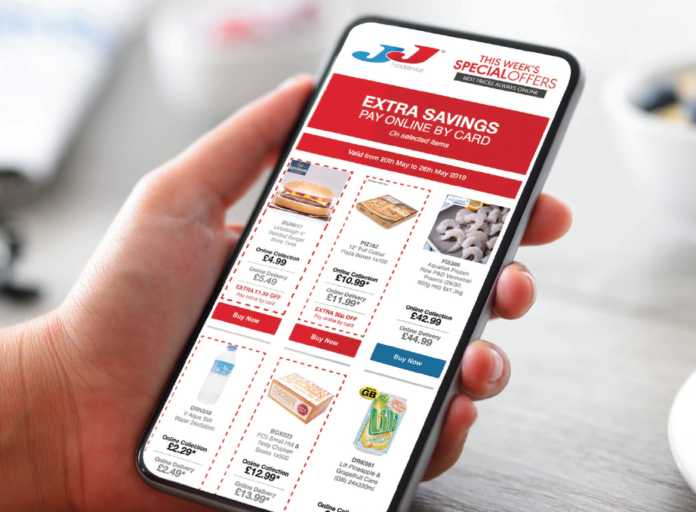When I made the move from the multiples to wholesale in 1991, I was taken aback to witness the primitive working practices across the industry. EPoS scanning was rare, inventory management completely manual and gross margins punched out on calculators. It was like going back in time 20 years. The gap between the two sectors was a chasm.
Fast forward to now, and the industry has improved massively, but there is still a way to go. I’m a firm believer in the investment in technology and maybe, with more political certainty, this is the year we will see some real forward movement.
Read more: The importance of operational excellence cannot be overstated
Australian wholesaler Moco Food Services supplies mainly catering outfits – pubs, clubs, restaurants and coffee shops, as well as hospitals, mines and the armed forces. It has invested heavily in technology over the past few years in the form of a new IT platform, new hardware and software component parts from the customer/chef ordering app, as well as a voice-controlled picking app.
The latter instructs the pickers to get the orders onto a pallet, and sequences the pallet loading into the trucks after organising the entire day’s deliveries dynamically into the trucks – within temperature zones in each truck – after optimising the number of vehicles, the distance travelled and meeting the customer delivery window.
The delivery trucks are routed on GPS and the customers can find out how far away their delivery is by simply using the app. The whole process is integrated, and one of the key benefits to management is the measurement and reporting on error rates and productivity.
The system also interfaces to receiving. The forklift drivers receive orders by RF linking the receipt to the purchase order then tying the placement to the computer location where it is put away. This is a great use of technology where all parties are benefitting.
Have you ever queued for an age at a supermarket checkout? Of course you have. I had the usual Christmas ‘death queue’ experience in my local superstore. This time, it was at a self-scan till where I was forced to stand in a snaking line.
Like most store operators, they are swapping out the traditional checkout units for self-scans. I understand the efficiency gains and, as a customer, I’m fine with this, but I take exception to having to queue and then do the work myself. What’s in it for me?
The Financial Times reports that since the financial crash in 2008, UK productivity has virtually stagnated. Firms have been reluctant to spend money on capital equipment. Preferring instead to make do and mend and employ more people to make up the difference.
Investment should deliver sales, efficiency, productivity and customer experience improvements. We talk about price, choice, service and quality, but it is investment in technology that is the key enabling element of the value chain. There is no point in being supercompetitive on price if stock availability is inconsistent or the delivery service is unreliable. There must always be a technology dividend for customers.
Wholesalers offer unique value in breaking down mixed loads and delivering cross-category composite consignments. However, the world is changing quickly and I’d like to see all wholesalers elevating from being simply box shifters to total solution providers.
Working back from the current and projected 21st century needs of their customers, wholesalers can use technology to simplify processes in order to secure first-choice service-provider status for their customers. High-quality customer service delivery in this way will improve retention and make it difficult for new entrants to take share from the established players.
Read more opinion pieces here









Thanks for your comments – great to have engagement. The article is about investing in technology to improve productivity and then pass the benefits to customers – in turn improving competitiveness. I think this great bang up to date advice and totally relevant in any era and in most commercial enterprises.
David, your thoughts are 10 years out of date. If the industry follows your advice we will be forever following and never catch up with a lengthening gap. The game changers in business today (Amazon and Ocado to name just two) are light years ahead of what you have just outlined Your comments are dangerous. Suggesting how Tesco operates as a shining example when they are being outpaced rapidly. Far too out of date I’m afraid David. I read your regular thought leadership is too and think it is very very dangerous for our industry. You are talking about shopping and queuing in a supermarket when a growing proportion of trade is home deliveries now. Before you say it is just a fad.. Home delivery is £151mn every week! £10.5bn per year. I wanted to mention this as a warning to fellow wholesalers to make up your own mind and hear from more relevant advisors. This is too outdated.
Furthermore, suggesting generalisation and total service?! Amazon is a generalist business. What they can’t compete with is the butchers and fresh produce delivered suppliers. ie specialist wholesale. I think this article is miss-guided advice for the sake of sounding clever. Very Dangerous.